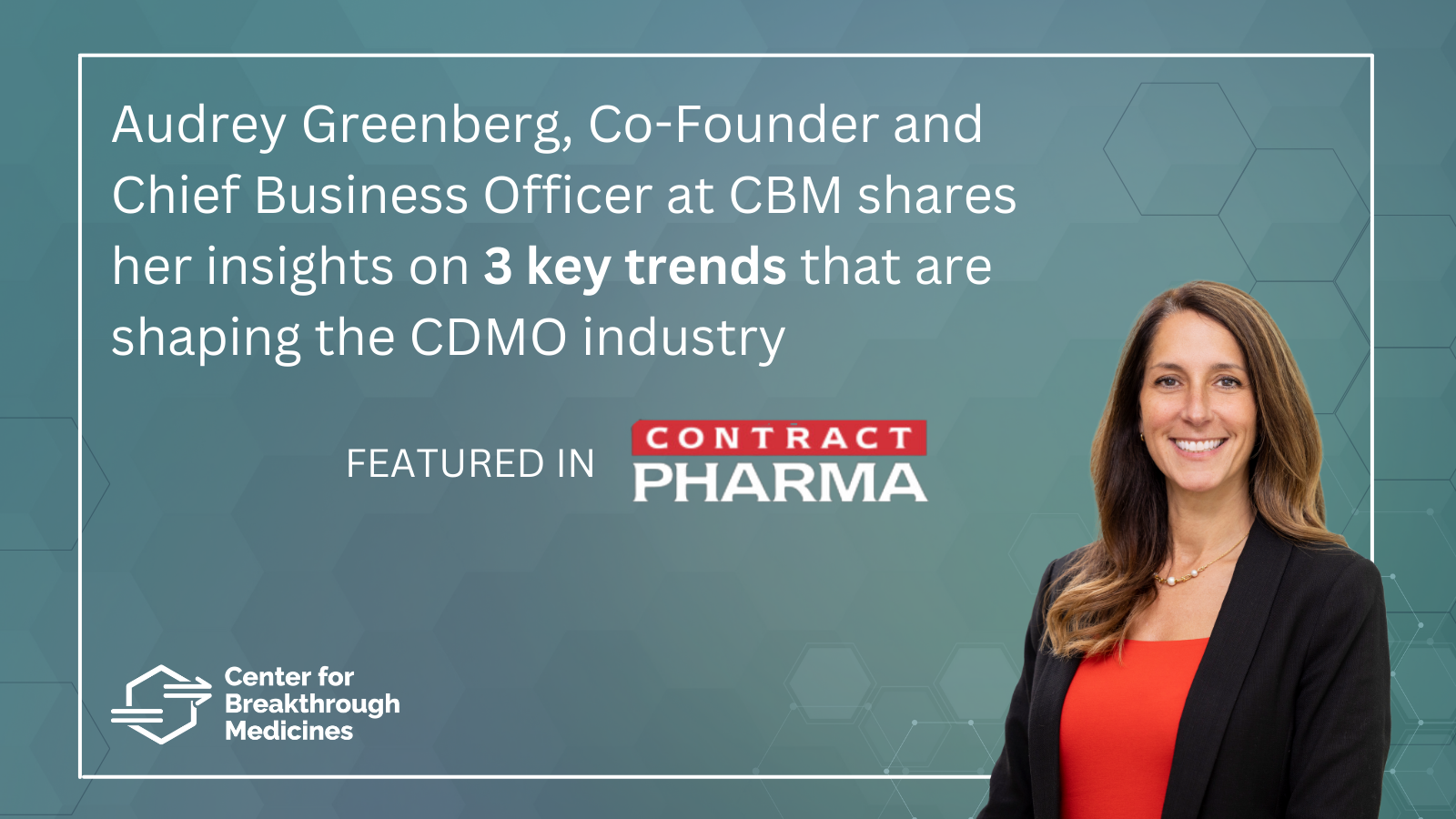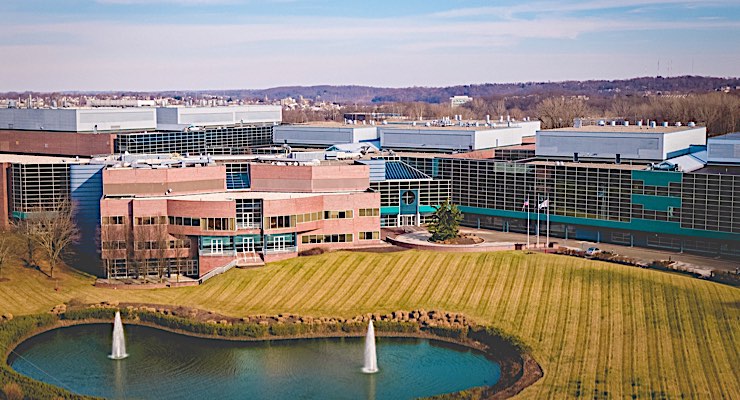“3 Key Trends” with Audrey Greenberg

The Center for Breakthrough Medicines’ Founder and Chief Business Officer offers her thought leadership.
What are “3 Key Trends” shaping the CDMO industry in 2023 and beyond? The Center for Breakthrough Medicines’ founder and chief business officer, Audrey Greenberg, shares her thoughts with Contract Pharma.
Outsourcing makes the most sense
As the first quarter of 2023 comes to an end, we are seeing a steady increase in companies outsourcing their cell and gene therapy development and manufacturing services and are doing so earlier. As the current macroeconomic environment is forcing companies to look more closely at their cash positions and burn rates, projects and headcounts are being scrutinized, forcing companies to deploy capital efficiently, optimize resources and outsource more frequently.
Building captive manufacturing capacity and expertise is expensive and time consuming. Fully equipped buildings cost $1,000-$2,000 per square foot and take between 18 months to five years to build. Sourcing, onboarding, training, and retaining specialized talent for complex manufacturing is extraordinarily difficult and the equipment and consumables used in bioprocessing is hard to procure with long lead times.
Outsourcing manufacturing gives clients access to on-demand expertise, technology, and capabilities without having to spend the time, money and resources in building and maintaining those assets. Outsourcing can also cut down on material and consumable costs and trim project budgets by virtue of having a proven method and platform. At the Center for Breakthrough Medicines, a cell and gene therapy focused CDMO with plasmid, vector, and cell therapy manufacturing, we also provide vector engineering and plasmid design services, a
differentiated offering when compared to our peers. These custom services allow companies to focus on early-stage research while outsourcing everything else.
The trend in increased outsourcing will persist even when the capital markets see improvement as companies realize it ultimately makes the most sense from a time, money, and talent perspective. Optionality and flexibility are key in the world of drug approvals.
With the increase in outsourcing, we are also seeing more of an effort to onshore manufacturing. Prior to 2020 there were inherent geopolitical risks with relying on international supply chains, and the pandemic further highlighted the need for more U.S.-based manufacturing. Onshoring eliminates some of the risks with procuring pharmaceuticals from overseas. As the gap between supply and demand continues to grow these efforts will remain critical.

Center for Breakthrough Medicines’ headquarters at the Discovery Labs, King of Prussia, Pennsylvania.
Flexible CDMOs
Capital limitations across the biotech industry have highlighted the need for “speed to milestone” when companies typically receive their next tranche of funding. CDMOs can work with biotechs and provide access to services without the tremendous upfront costs by taking equity in lieu of services, participating in funding rounds, and offering flexible payment terms, all things CBM has done recently for clients.
CBM also provides more flexible and collaborative relationships for our customers. We have created beautiful person-in-plant space for our clients to come in, work in the labs, and allow them to be as hands-on or off as they would like. This flexibility is something that really helps us stand out in the CDMO space.
At the end of the day, we’re here to help therapies reach patients. It is not lost on us that there are many groundbreaking treatments that never make it to patients because of capacity limitations or clinical/commercial failures. Whether it be for improper regulatory or capacity planning or lack of capital, there are patients dying when cures are available. CBM works with companies to optimize processes, develop better quality and higher quantity batches, and create cell lines with higher yields.
More approvals for cell and gene
The industry is expected to see a dramatic increase in cell and gene therapy commercial approvals resulting in an increasing gap between supply and demand. There were five approvals for cell and gene therapies last year, while in 2023 we’re expecting to see a five-fold increase in the number of approved products. With this exponential increase, manufacturing capacity and the regulatory pathways stand to be the biggest obstacles in getting advanced therapies from bench to bedside.
Fortunately, the FDA seems to be making a huge effort to grow the agency to meet this demand. Following a major bottleneck due to the pandemic, they’re hiring more and working with companies to better support and understand platform technologies, processes, and needs to create more efficient ways of approving therapies. The goal across the entire biotech ecosystem is to bring lifesaving treatments to patients in the fastest, safest, and most efficacious way possible. We are going to continue to see critical industry stakeholders work to find creative and innovative ways to accomplish this.
